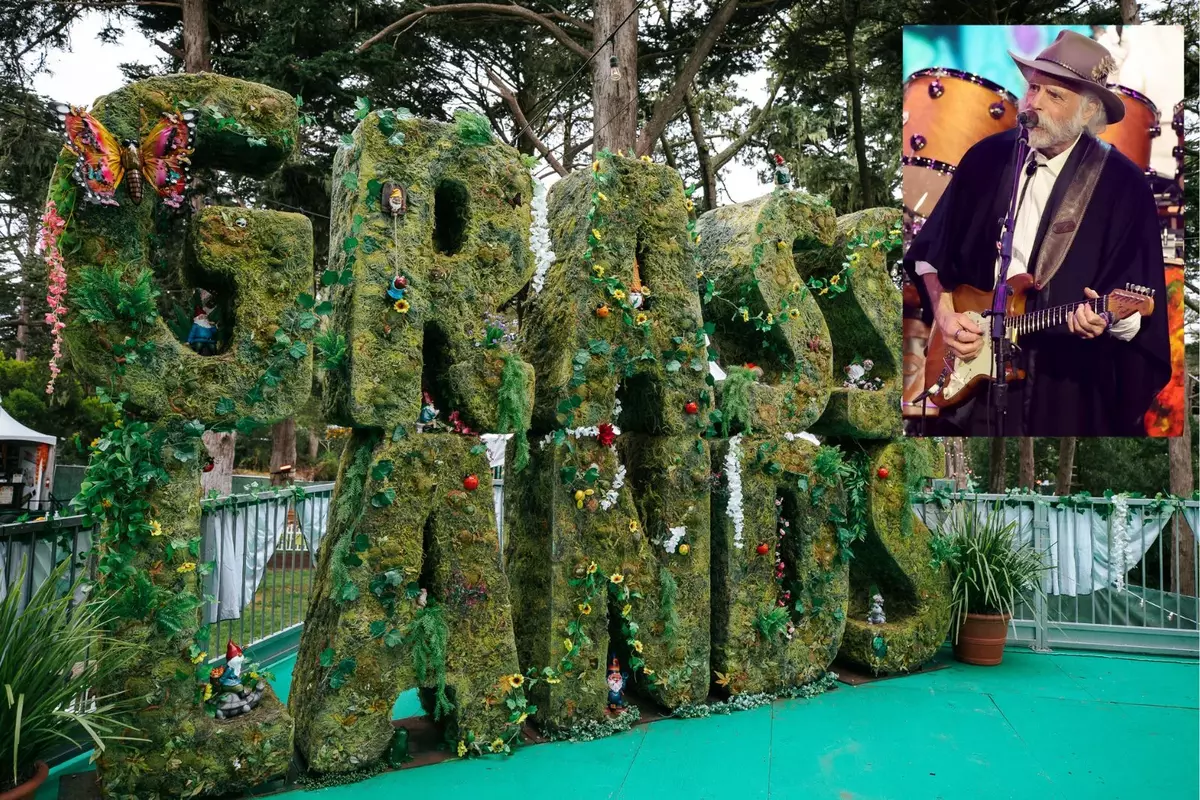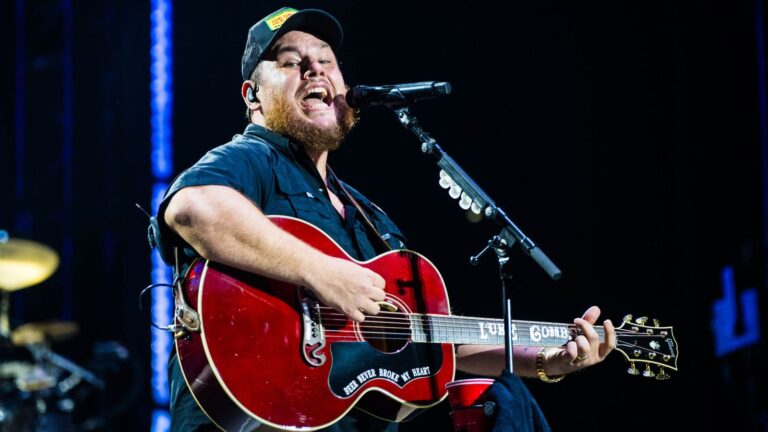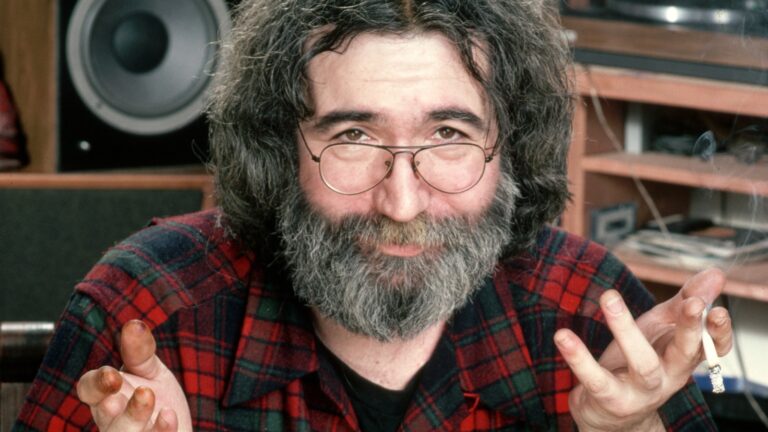When the Grateful Dead formed in 1965 in San Francisco, cannabis was very much illegal.
It would be another decade until the drug was decriminalized and another 21 years after that until California became the first U.S. state to legalize cannabis for medical purposes. The legalization of recreational use arrived in 2016. By then, Jerry Garcia was dead, the “original” Grateful Dead no longer existed and its successor, Dead & Company, was just a year old.
Of course, as anyone who’s ever been to a Grateful Dead concert knows, cannabis was being consumed at the band’s shows throughout all of those years. Within just a few years of their formation, the Dead went from being the remnants of a local jug band to full-fledged psychedelia with plenty of LSD, pot and open-mindedness included. If the counterculture movement in San Francisco had been called something else, it might have just been: the Grateful Dead.
READ MORE: How the Grateful Dead Met
Things were not always light and fun – the Dead’s relationship with drugs, which was not limited to just cannabis, took its toll. Garcia, for example, was busted for drug possession multiple times over the years and did several stints in rehab facilities. That’s where he was when he died of a heart attack in 1995 at the age of 53. That isn’t to imply drugs killed Garcia, who lived with other health issues including diabetes, or that cannabis was responsible for his struggles with addiction — contemporary research states that although one in 10 adults who use marijuana will develop a cannabis use disorder, the outcome often depends on how early in life the usage began, issues with additional types of substance abuse and other mitigating factors. In other words: while it has been proven to be a helpful tool for those facing chronic pain and other medical ailments, cannabis, like any other substance, can be misused.
“Drugs are one of those things everybody has to decide for himself,” Jerry Garcia said to Spin in 1987. “I don’t want anybody to have the idea I’m somehow endorsing drugs. But I think anything that gives you the ability to change your personality or see things from another perspective is helpful. But it’s people’s responsibility to deal with it in their own ways.”
Finally, Legal Weed at a Grateful Dead Concert
If you have been to a Dead & Company concert, you know that cannabis consumption has carried over from the original Grateful Dead days. It’s sold outside on Shakedown Street and joints are passed around between strangers and friends alike. As long as there are fans of the band, it’s almost certain weed will be smoked at their shows.
History, however, is about to be made in California when cannabis will be sold legally for the first time ever at a Dead concert. It will be thanks to a company called embarc, which produces whats known as Grass Lands, “cannabis consumption events at mainstream festivals” for those 21 years of age and up.
Alive Coverage
On Aug. 1, 2 and 3, Grass Lands will be present at all three of Dead & Company’s scheduled 60th anniversary shows in Golden Gate Park, the biggest park in San Francisco. Visitors can purchase and consume fully legal products, speak with California growers from the nearby Emerald Triangle in Northern California (the largest cannabis-producing region in America) and enjoy the work of other local artists and musicians. As Lauren Carpenter, the CEO and cofounder of embarc tells UCR, its a “community-oriented space.”
“We’ve tried to be really deliberate about bringing folks to the table like Humboldt Family Farms, which is an Emerald Triangle collective of local, small farmers, so that we can bring them back down out of the hills, and back to the park 60 years later to sort of have this celebration of cannabis,” she adds. “I think we’ve been very thoughtful about designing something that is appealing to everyone, and what I mean by that is: you do not have to be experienced with cannabis to have curiosity.”
Alive Coverage
And who better to embody that sentiment than the Grateful Dead, a band who, through their music and general embrace of counterculture, have become synonymous with the ideas of camaraderie, improvisation and being oneself even when the old guard doesn’t approve of it?
“This band, members of this band, have long had relationships with cannabis farmers, right? And have long been advocates and consumers and everything else,” Carpenter says. “And so we couldn’t integrate legal sales and consumption into a Dead & Co. show and not make sure that we were bringing some of the folks in who, I think, have sort of been there the whole time alongside the band and making that fight, you know, really pushing for normalization and destigmatization.”
Like cannabis, the Grateful Dead’s music is not everyone’s cup of tea, but if one thing has been proven in the last decade since Dead & Company’s formation, it’s that the band’s long, strange trip has resonated with a new generation of fans. The demographic of Deadheads is no longer just gray-haired hippies. These days, it also embraces more and more younger fans — many of the people attending Dead & Company shows today weren’t even alive when Garcia died, this writer included. The Grateful Dead has changed over the course of 60 years, and so has society’s understanding of cannabis, but the intrepid spirit of the band, the role of creativity in society and the dedication of people working to make cannabis a safe, secure and reliable recreational activity, have not.
“I think we’ve tried to tailor Grass Lands, weekend one…to legacy, to history, and really to a celebration of collective work for normalization,” Carpenter says. “60 years later to be reconvening in the Bay Area where this all started, there’s something so beautiful [about that]. … I am excited to see, you know, does this help open hearts and minds beyond the park in other communities at other events? That we can recognize the role that cannabis and music have always played in going hand in hand.”
Alive Coverage
Grateful Dead Albums Ranked
Even the band’s most ardent supporters admit that making LPs wasn’t one of their strengths.
Gallery Credit: Michael Gallucci



